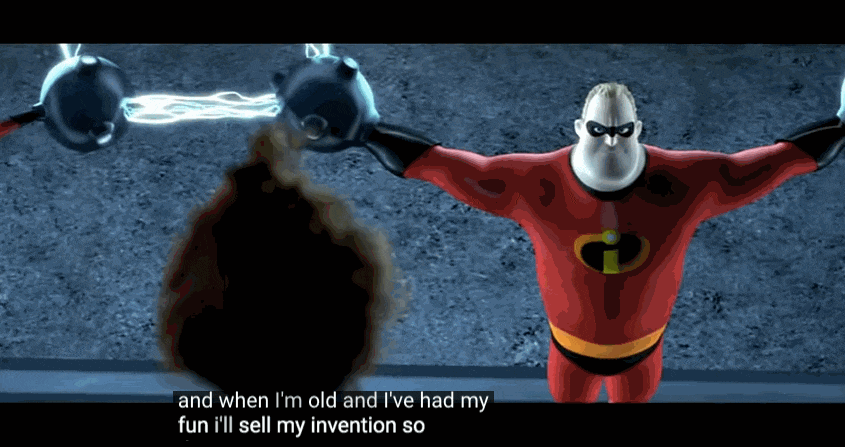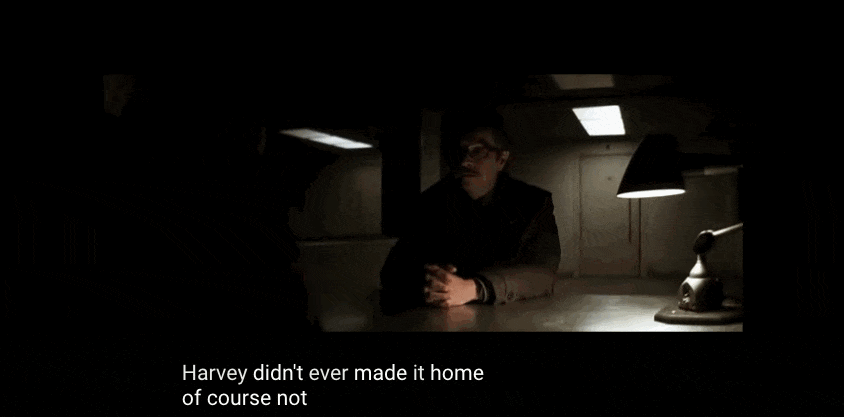 We stand in an age where American language and culture have been canonized on the internet. The gospels, the battles, the bests and worsts of what we can produce are understood like the changing of the seasons, or gravity. This collective understanding is a five-hundred lightyear-deep mud puddle. In all its collected data, the internet and its self-proclaimed culture-keepers lust for organization, to catalog and clarify, and the same idiots running this library have developed Dewey decimal systems to keep all this trash in line.
We stand in an age where American language and culture have been canonized on the internet. The gospels, the battles, the bests and worsts of what we can produce are understood like the changing of the seasons, or gravity. This collective understanding is a five-hundred lightyear-deep mud puddle. In all its collected data, the internet and its self-proclaimed culture-keepers lust for organization, to catalog and clarify, and the same idiots running this library have developed Dewey decimal systems to keep all this trash in line.
In all the shared, memetic language lifted and placed to remind us, yup, we're assuredly adults, and we're all on topic, several pop culture gospels have been misread.
These are four things in TV and movies that have done more harm than good:
\\ Unless season 20 redeems South Park, the show has outlived its usefulness
South Park's penetration into the cultural lexicon is beyond measure. It surprised a gigantic audience with a Trojan horse: here is naughty language from badly-animated child characters, a funny sight on its own. Get this though, it's secretly packed with opinionated, informed cynicism toward the popular political landscape.
Like anything that reaches such a wide audience, even with the creators' vast comedic intelligence, their interpretations become reductive when filtered to their 2,000,000+ weekly audience. The kids and idiots pull the wrong punchlines. They're repeated later without context. Thoughtful jokes become memetic, repeated to your billions of buddies online for the sense of familiarity, ironically manifesting in the current season's 'Memberberries joke where characters eat talking fruit that remind them of times when things were simpler.
Scroll through any tech, entertainment, or culture site's comments section and you'll find a reference to South Park that grinds conversation to a relieved halt. People are happy when a South Park joke shows up. It means we can all laugh at the same thing, context or commentary be damned. Shitheads praise South Park as the theory of comedy-relativity, and don't even notice when they misquote or misunderstand it.
When that same comedy theory becomes repeated nihilism and punching down from comedy millionaires, the punk rock crudity is lost. South Park ought to have evolved a few more times as it did during the Bush administration. Sadly, it now causes more harm than good.
\\ Adam Sandler poisoned the male psyche for decades

Adam Sandler is a thrashing bag of warring laboratory mice collected into a bipedal human. Billy Madison and Happy Gilmore are iconic comedies. Sandler plays an everyminded psycho in both, burdened with lazy white guy impotence atop his shoulders, blessing our world with thrashing violence we're all damned to grip, unvented.
Not Sandler though! He gets to literally beat up every adversary he encounters like he's a born-free biker operating on a freer mind-plane. We ought to be envious. He gets endorsements. He talks like a child. Girls like him. He is irredeemable, but, hey, all the old people surrounding him think he's harmless and charming when in fact he should probably, like, be arrested.
Adam Sandler is the ultimate 1990's power fantasy. You get to be an immovable shitsack, but you have a secret talent (Happy Gilmore) that's fueled by channeling your barely hidden rage (The Waterboy), and you could be a winner if you tried for a week and a half to hone that talent (The Wedding Singer), and when it's all done, hey, we're gonna get laid.
To all those goofs who felt teased as a kid or called a failure because you weren't as capable as your dad (Big Daddy), or weren't great at hockey, or couldn't achieve musical stardom, or never grew up, here's your patron saint: Adam Sandler, a living fantasy of what you think you truly are worth inside.
\\ Why does everyone remember The Incredibles for the "When everyone's super..." line?

Is The Incredibles the best Pixar movie? Don't ask that question. That's like asking the best Miyazaki movie (I made a case for Mononoke once). Everyone has a personal list. Let the question rest. We all agree the Cars movies suck, Brave and The Good Dinosaur were oddities, and there will be A-tier and B-tier films from a studio so sharp, this very website (www.ghostlittle.com) bases its story structure on their core tenants.
Why is The Incredibles mentioned on this damning list though?
Because in my travels around the internet's collective unconscious, splayed in articles and comments sections, this is the takeaway line from an all-time great movie like The Incredibles:
"When everyone is super, no one will be."
The villain produces this sentiment to the captive heroes. In the following years, this became the nihilistic lesson viewers claimed from the brilliant animated exploration of superhero lore. Not the family. Not the embracing what makes you unique.
No, it's: "we're all the same, we're all normal, and we all are lame, because we only THINK we're individuals." We're super-exceptional, and since we are, we aren't.
This sentiment bleeds into distrust toward intelligence, outliers, and creatives. We all have access to the same productive means and communication channels: the internet, social media, personal YouTube accounts, anything. We're all super-powered in that way these days. But step beyond those boundaries to pretend you're better than super?
The crowd will tell you you're something you aren't. Sadly, The Incredibles is inflicting more harm than good in our current climate.
\\ The Dark Knight, in all its brilliance, has done more harm than good to popular culture

The origin of this idea. The Dark Knight almost deserves its own standalone piece on this topic, and others.
Simply put, The Dark Knight empowered geek culture to demand they be "taken seriously," as if that were a tangible or required thing. Baby Billy wanted to point to Batman at the Academy Awards and make dad WATCH and understand Baby Billy wasn't a worthless, near-sighted disappointment.
Baby Billy misunderstood his enemy. Hollywood is quite happy to create any movie that will make money. Audiences do not benefit from a comic book movie earning "legitimacy" and recognition. Film-making and popular culture are not team sports. If you believe they are, you are a victim of persuasive marketing, or you're fucking six years old fighting over Nintendo versus Sega (or Sony versus Microsoft (or Call of Duty versus Battlefield)).
Bad marketing makes jerks of all of us.
Let's stay thematically consistent and wind the clocks back: The Dark Knight was a thoughtful meditation on individual heroics staged against simplistic nihilism—nihilism within ourselves, within our government, within the nameless, human-shaped natural creatures roaming our society, given form as the Joker in this case.
Like The Incredibles, the charming villain steals the show from the moralistic heroes who must play by the rules. Heath Ledger's tragic death immediately after completing the role deified the performance. He couldn't tell the fans to not celebrate the Joker's "tear it all down" mantra. So fans made it their own.
Enormous, pent up rage still gripped America at The Dark Knight's release in 2008, even at the tail end of George W. Bush's regime. The Joker's message rang a bell far more than Batman's. Burn the corrupt schemers from their shimmering towers. Set the citizens against each other. Everything burns. It's more fun to terrorize than to have a plan and lose the plan.

The same geeks that wanted to be taken seriously discovered their hero in The Dark Knight wasn't Batman, fighting for order and stability, but the Joker. The Joker's message fought the system that demanded dorks remain illegitimate and without recognition at award shows or across the table from dad. We once again side with nihilism's simplicity.
Where did we discover validation for this unhappy disenfranchisement? In a superhero film, once again, just like The Incredibles.
Nobody remembers the very end of The Dark Knight where stability for Gotham's people is achieved through an adult, non-psycho person's true sacrifice. People only recall the Joker. They hail the Joker as an industry disrupt. They hail the Joker as a hissing reminder to the folks in power about how much they've got to lose. They hail the Joker and have a laugh about the mess, have a laugh about the establishment's silly rules, have a laugh about humans' violent nature when they're, heh, pushed too faaaarrrrr, ya know?
We're all just gonna eat each other, right? Yeah, maybe if we're all dumb enough to misunderstand a fictional villain.
Villains in fiction are lessons. Know this: whether the Joker, Syndrome, Adam Sandler, or Eric Cartman, we look upon villains so that we may recognize evil in real life, not to emulate their "ethically-murky" and adolescent insanity.
Don't miss the point.

